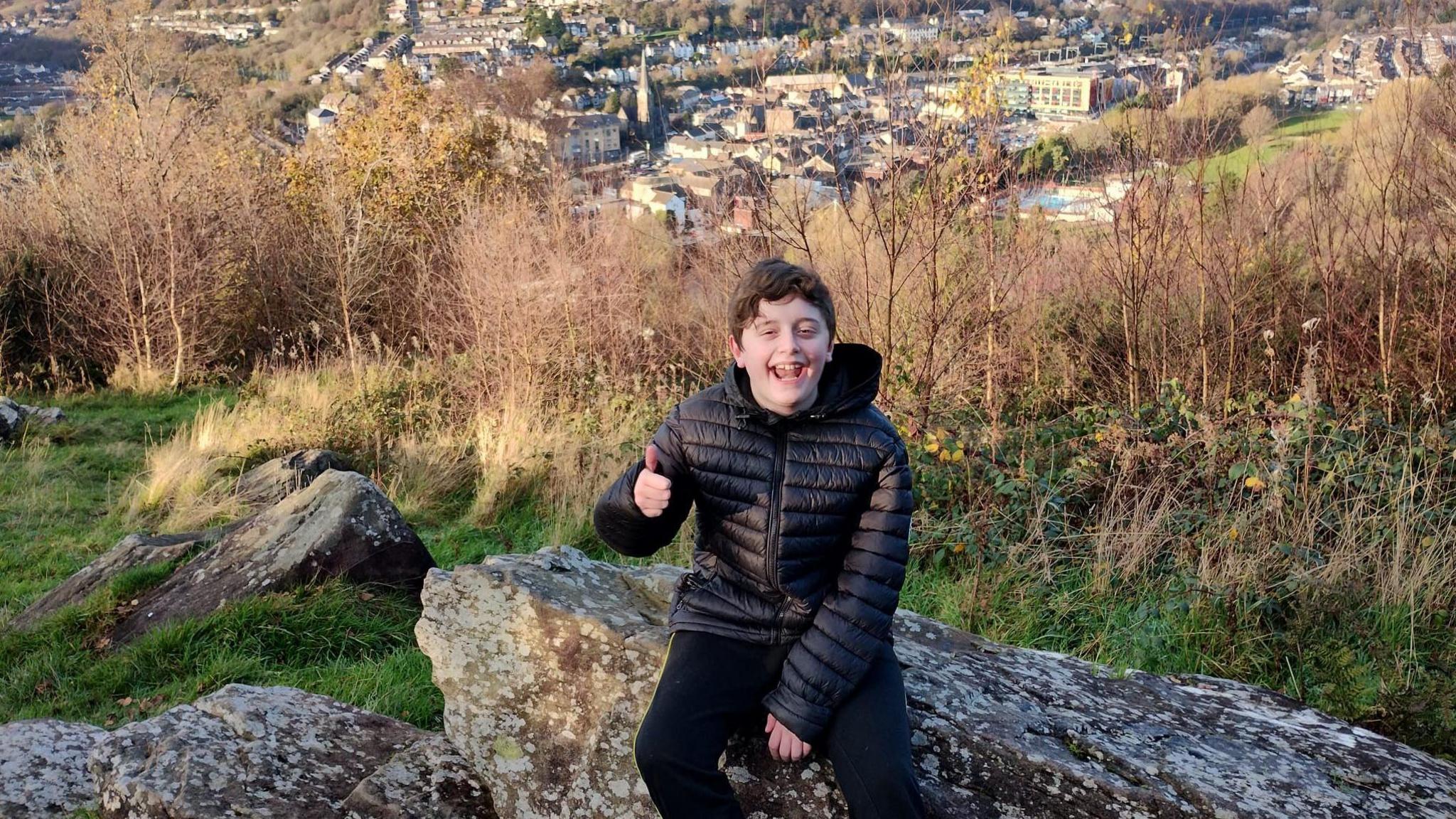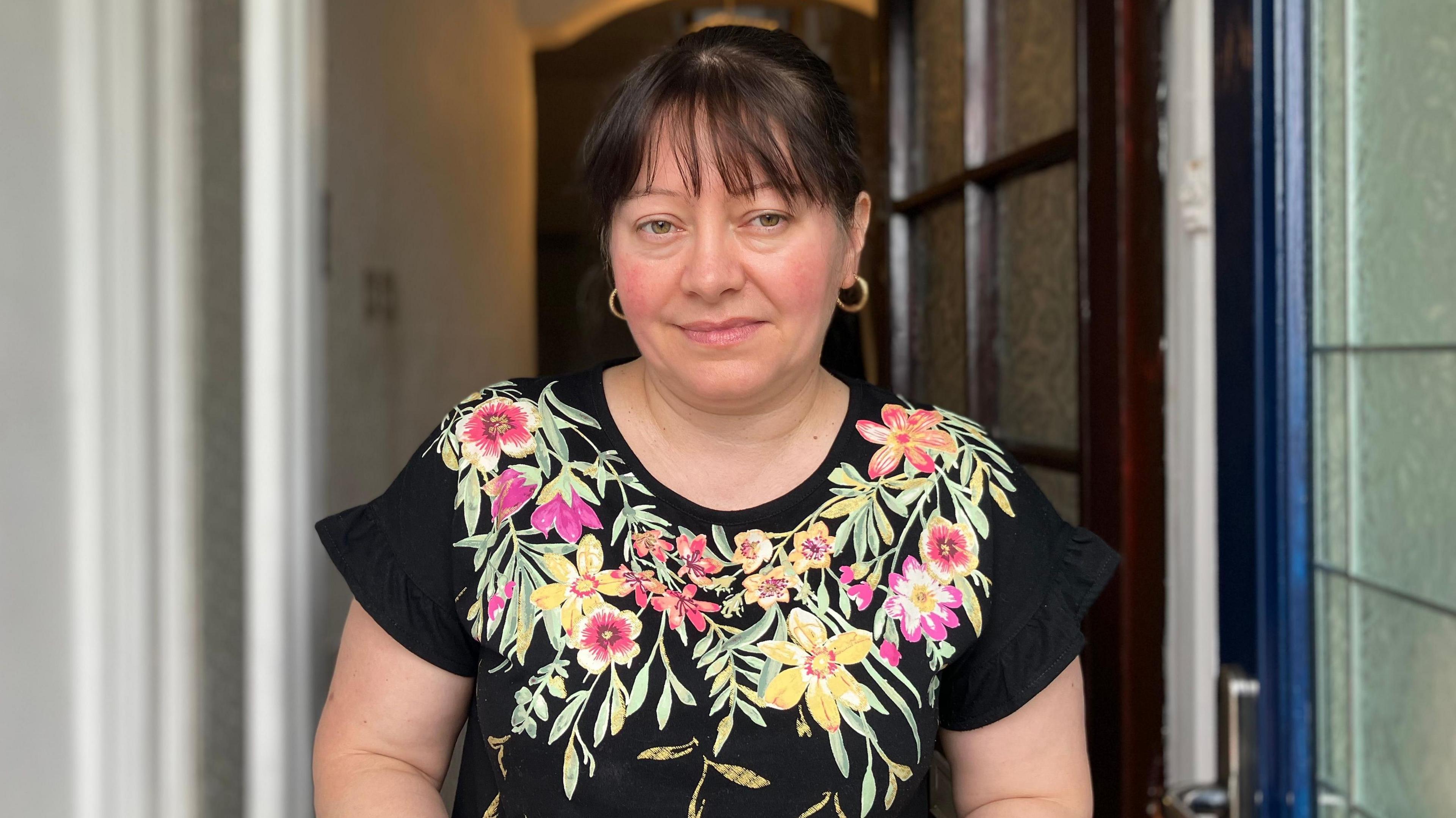Teen with MND 'in limbo' as council can't adapt home
Our lives are on hold, says family of boy with MND
- Published
The family of a 14-year-old boy with motor neurone disease say they are "desperate" to get him home from hospital but are unable to as their home is not suitable for him.
Kyle Sieniawski from Pontypridd, Rhondda Cynon Taf, was diagnosed with the rare degenerative condition, which mostly affects people in their 60s and 70s, earlier this year.
His mum, dad and brother have been living at hospital with him for almost nine months, but the council has told them their home is not adaptable and no other housing is available.
Rhondda Cynon Taf council said senior staff met "very regularly" to explore all possible options for Kyle but a suitable property had not yet been found.
Is there a cure or treatment for MND?
- Published3 June 2024
Ex-England cricketer 'incredibly proud' to receive MBE
- Published14 June
Kyle was diagnosed with motor neurone disease (MND) in January aged 13 after he lost mobility in his arm.
Now he cannot use any of his limbs and uses a breathing mask and feeding tube.
"You feel awful really, hopeless, because they tell you that there's nothing they can do to treat it, or there's no possible cure," said his mum, Melanie.
He and his family are currently living at Noah's Ark Children's Hospital in Cardiff.
"We are obviously very desperate. We are living in the hospital. All our lives are on hold," she added.
"It's quite scary because when we came in, he was walking, and now he can't do anything.
"With the three of us we can manage to hoist and move him and put him in his wheelchair. He's pretty stable and he's got all the medication that he needs."
Their four-bedroom terraced house, which is up for sale, has steep steps up to the front door, a narrow hallway and an upstairs bathroom.

Kyle's condition has rapidly deteriorated since this photo was taken in November 2024
The family say they have asked the council for suitable temporary accommodation as they try and sell their home, but have been told nothing is available.
"It's unbelievable... we're in limbo," Melanie added.
"It's really urgent because Kyle needs as much good quality of life as he can get now."
Melanie said the local authority mentioned the possibility of finding suitable accommodation in another area of south Wales.
"That would be quite difficult... and believe me, it's hard enough as it is," she said.

Melanie Sieniawski is calling for suitable temporary accommodation for her son
The family's experience is not uncommon according to the MND Association.
"Kyle's story is a very, very sad and difficult story for the family, but unfortunately, quite a common one for people living with MND," said senior policy adviser in Wales, Jen Mills.
"Accessible housing is an issue for several reasons, and partly because there's not enough accessible housing stock across Wales.
"MND is a really rapidly deteriorating condition and a third of people die within one year of diagnosis."
Rhondda Cynon Taf council said it understood the family's urgency in wanting the situation resolved.
"The family are considered a priority for all forms of housing, and senior staff from children's services and housing meet very regularly to explore all possible options for Kyle," it added.
"It is sadly impossible to adapt Kyle's family home to meet his needs, the access and layout just does not allow it.
"We are grateful to the family for their continued engagement, and to recently agreeing for us to extend searches out of the local area to try to provide them with what they need."
What is MND?
MND affects nerves found in the brain and spinal cord, which tell your muscles what to do.
This leads them to weaken and stiffen over time and usually affects how you walk, talk, eat and breathe.
It is a relatively rare condition which is most common in people over 50.
A person's lifetime risk of developing MND is one in 300 and about 5,000 adults in the UK will have the disease at any one time.